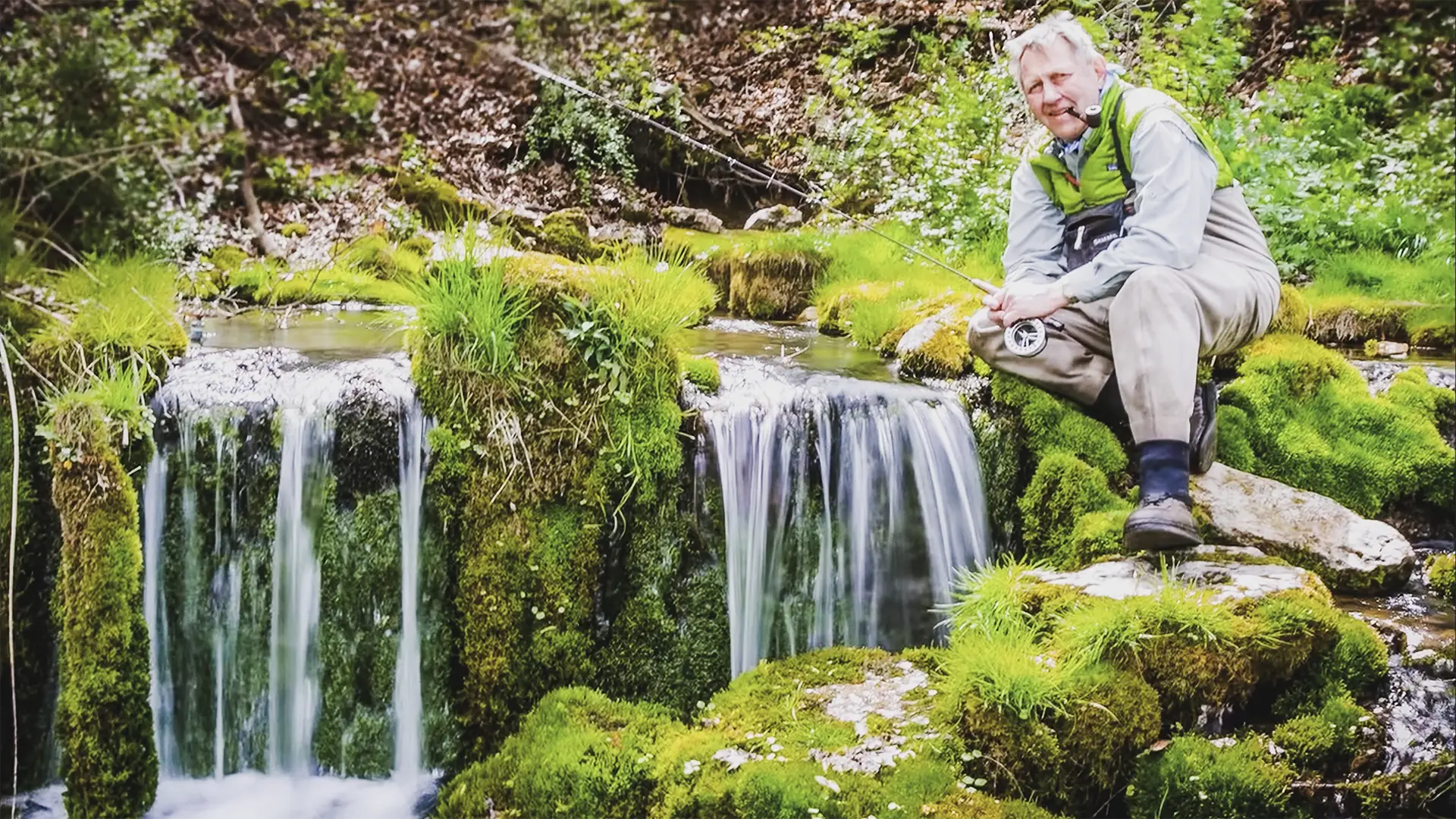Stephen Born came really close to becoming an oil man. After earning a master’s in geology from the University of Oregon, he worked as an exploration geologist at Shell Oil as the company was pioneering the search for oil Outer Continental Shelf. He explored the whole West Coast, from San Francisco to Cape Flattery, planning for a future where oil derricks dotted the horizon. Shell came to him with an offer for a special position with big potential. “Where does all this lead?” he wondered.
If he took the job, he would have spent a year overseas being formed into a true corporate magnate. He would’ve kept climbing — someday, perhaps, all the way to the top. It was a bright future, to be sure, but it was missing one critical ingredient: water. Wadable, fishable, water. “I’ve always been haunted by water,” Born says. “Whether it’s oceansides, rivers, springs emanating out of the ground, wetlands … I can’t imagine not being near water.”
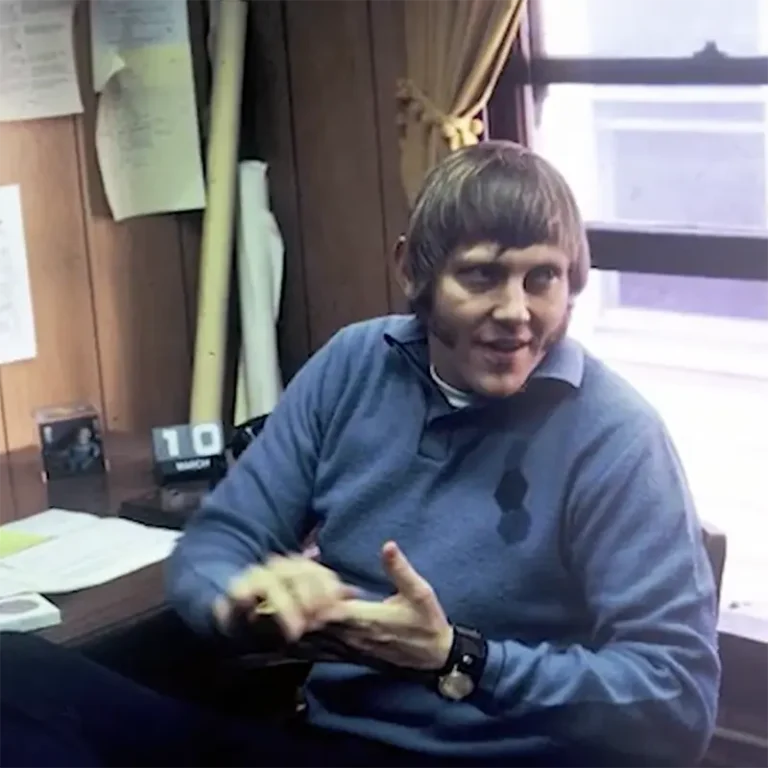
He politely declined, following his already-set plan to head back to school for his PhD. He enrolled in the geology program at the University of Wisconsin–Madison, where he came across the water resources management program in the Nelson Institute for Environmental Studies. He added it to his course load, and the rest, as they say, is history.
It’s easy enough to find the timeline of Born’s seven-decade career: from being one of the first students in the Nelson Institute’s water resources management program to leading the program and establishing others; from directing the Wisconsin State Planning Agency to chairing Trout Unlimited, the nation’s largest cold water conservation organization. But the river that runs through it holds a deeper look at the Wisconsin Conservation Hall of Famer’s raison d’être. “Aside from the fact that you and I are made up largely of water — from an aesthetic point of view, from a literary point of view, from a recreational point of view — it was always magic for me.”
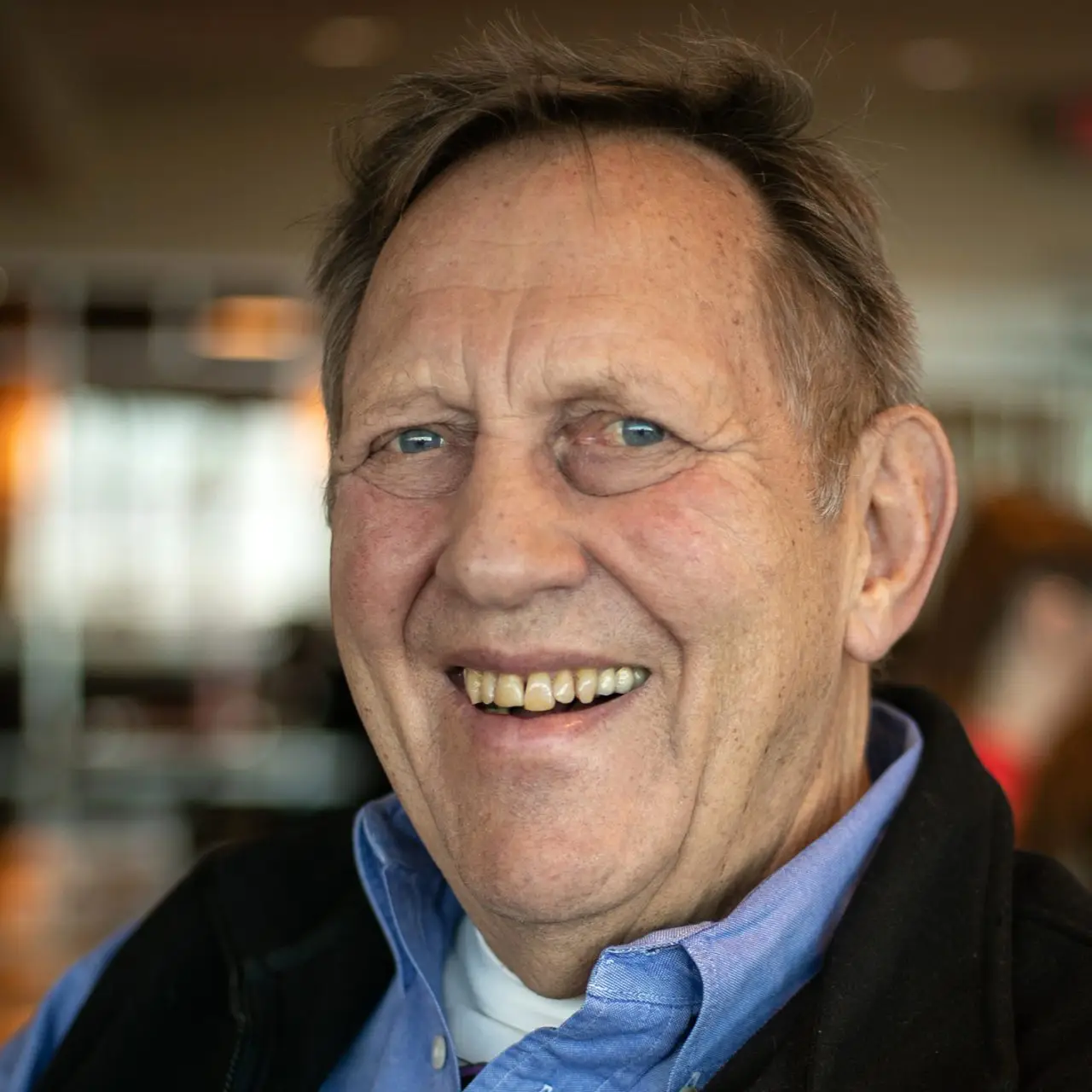
“Pull away from yourself and take a look at what you’re doing [and] how you’re relating to other people.”
– Stephen Born
Hook
Born grew up in Chicago’s south suburbs. He remembers a summer vacation when he was seven or eight years old. In a creek somewhere in Michigan, he saw people fly-fishing. Fascinated, he waded into the stream. He emerged with legs covered in leeches and an “addiction” to fishing. “By the time I was 12, we were sneaking away regularly, occasionally ditching school, and going down to fish this little canal for bluegills and carp, catfish and one thing or another.”
When he went to college at the University of Illinois–Urbana Champaign, he entertained a career in ichthyology, or fish zoology. A geology professor captured him with a more interdisciplinary approach. “Geology became this integrated, synthetic science, which also provided a framework for thinking about resources, including water,” he recalls, so Born enrolled in the program. In his sophomore year, he headed west for a field geology camp in Wyoming’s Bighorn Mountains. “That was where the Western love affair started,” he says. That’s how he ultimately wound up in Oregon, and then at Shell.
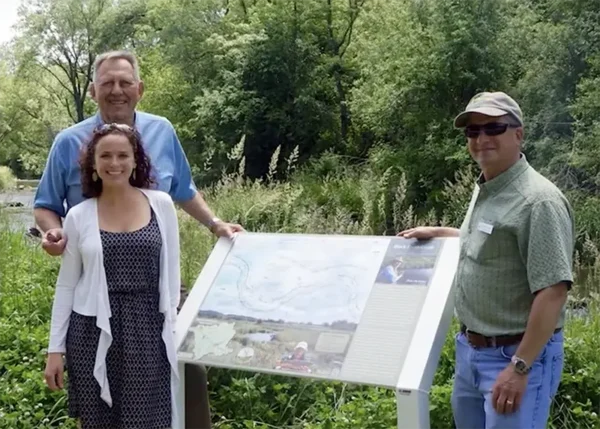
In 1966, Born made the move to Madison to start his PhD. With encouragement from several faculty members, he tacked on the water resources management (WRM) MS. “I pursued the WRM degree to expand my skillset and my vision about resources management,” he says. “WRM has played a big role in my life. It was a perfect program with really interesting people.” When he ventured to Wisconsin, Born fully expected to go back out west. He tried: after earning his master’s, he went to the Desert Research Institute in Nevada to finish his dissertation. (He lived on the Truckee River and focused his work on the Truckee and Pyramid Lakes, “home to the largest Lahontan cutthroat trout in the world that had become extinct through water management practices.”) But “Wisconsin came calling,” he says, with a position at the UW to work between state government and the university on the management of Wisconsin’s resources.
“A lot of faculty [members] at the university had really nurtured me, played big roles in shaping my outlook and interests. So, even though I thought I would be headed back out west, I wound up staying,” he says. A few years later, it was then-Governor Patrick Lucey’s turn to come calling with an offer for Born to head up the State Planning Agency and, eventually, serve as the energy director. While working for the state, Born kept a foot in academia. He stayed on the UW–Madison faculty through his retirement in 2005, teaching in both the Nelson Institute and the Department of Urban and Regional Planning. He served two terms as chair of the water resources management program and led several of the program’s hallmark practicum projects. Fusing his role as the state’s energy director with his position at the Nelson Institute, Born also helped spur the creation of the institute’s energy analysis and policy program.
“Along the way, I drank the Wisconsin Kool-Aid: a magical combination of people in the university; the resource heritage here; the environmental ethic, and a clean state government at that time doing a lot of interesting progressive things,” he recalls.
Line
As Born’s connections through both the university and the government grew, so did his influence. He used it for good, engaging with a number of nonprofits dedicated to watershed health and management. The connections didn’t hurt in the world of fishing, either.
“I learned to fly fish at Herb Kohl’s ranch,” he says, casually referencing the 190-acre Red Hills Ranch in Wyoming, which was owned by Kohl until his passing. Born, alongside a few friends (“a couple other ne’er-do-wells,” he jokes) would convene every summer to spend a week fishing. “Even though we were only out there on the ranch for a week or two each year, there were so many great things. That was a spectacular spot to learn,” he remembers.
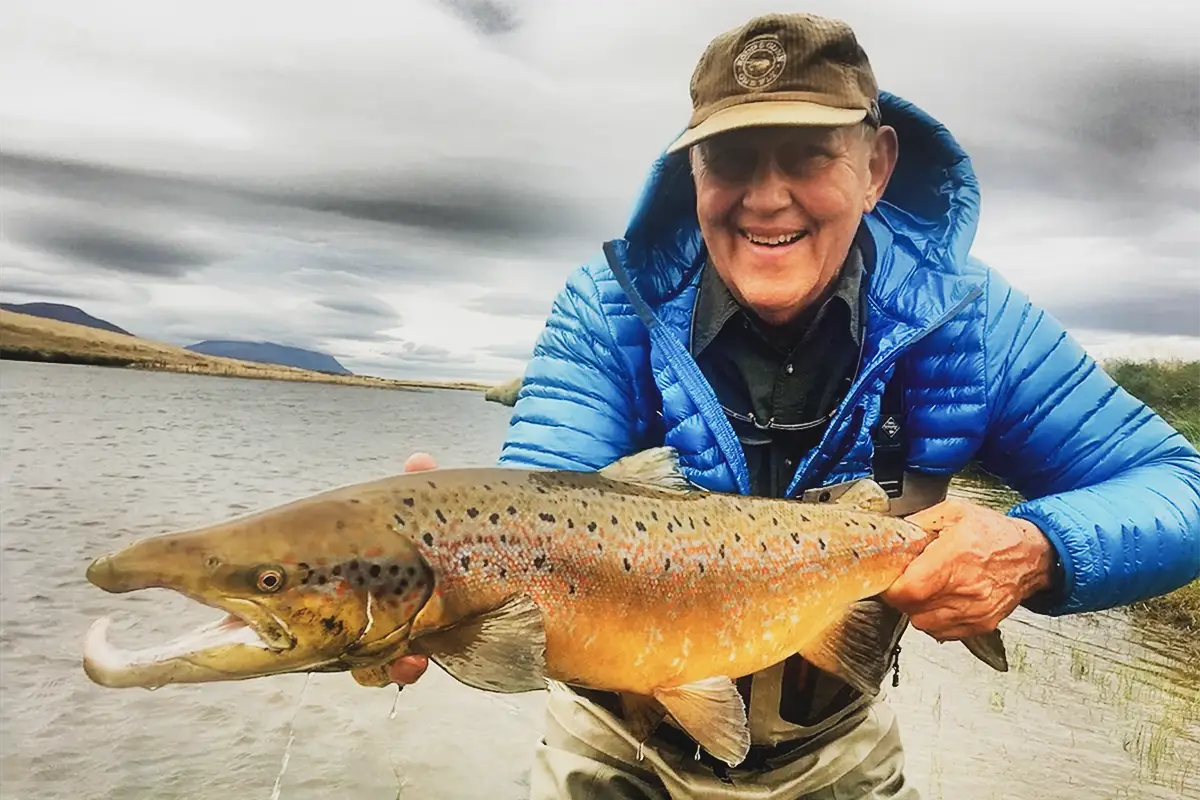
It was a serendipitous connection, Born says, that led to a lifetime of fly-fishing. He has since written a book on Wisconsin’s fly-fishing, traveled the world in search of game fish, and offered expertise to water resources management groups around the globe. One such group, the Henry’s Fork Foundation, finally drew him back in the western United States. “I put heartstrings and deep roots down in that part of the country,” he says, “but I didn’t know this little corner of southeast Idaho and this famous river out there. I figured this would be a great chance to learn to fish this challenging, world-famous river — and learn about western water resource management.”
Through his service on the Henry’s Fork Foundation board, he’s made some lifelong connections … and yes, further expanded his fishing. “A lot of the people I wander around the world fishing with these days are people I met out on the Henry’s Fork. An eclectic crowd of people gravitate there … physicists and computer engineers from MIT and Harvard, doctors from San Francisco, and corporate executives from Texas,” he says. “And the heartbeat of the whole thing was trying to fool a trout on the Henry’s Fork River.”
Henry’s Fork remained a pivotal spot for Born. In 2023, he established a scholarship through the Nelson Institute to pair UW–Madison students as interns with the Henry’s Fork Foundation. “It’s a chance to really expand one’s vision, from the water riches of Wisconsin and the Midwest to a very different perspective on water management,” he says.
And Sinker
Beyond racking up accolades, Born hasn’t changed too much from the little boy emerging from a stream covered in leeches. He spends most of his time fishing streams and watersheds around the globe. This summer, he was in Idaho, Montana, and Cuba, and the Caribbean or Puerto Rico is up next. “And yes, there’s a fish …” he says, anticipating a canned question like what’s your favorite fish. “I’m chasing tarpon right now,” he says. “That’s what I’ve been chasing around in Cuba. My saltwater fishing is not out there trolling for big tuna or letting the boat do all the work. This is sight fishing in small boats on the flats. You’re just totally, organically part of the environment. It’s off the charts in terms of the aesthetic and the emotional experience.”
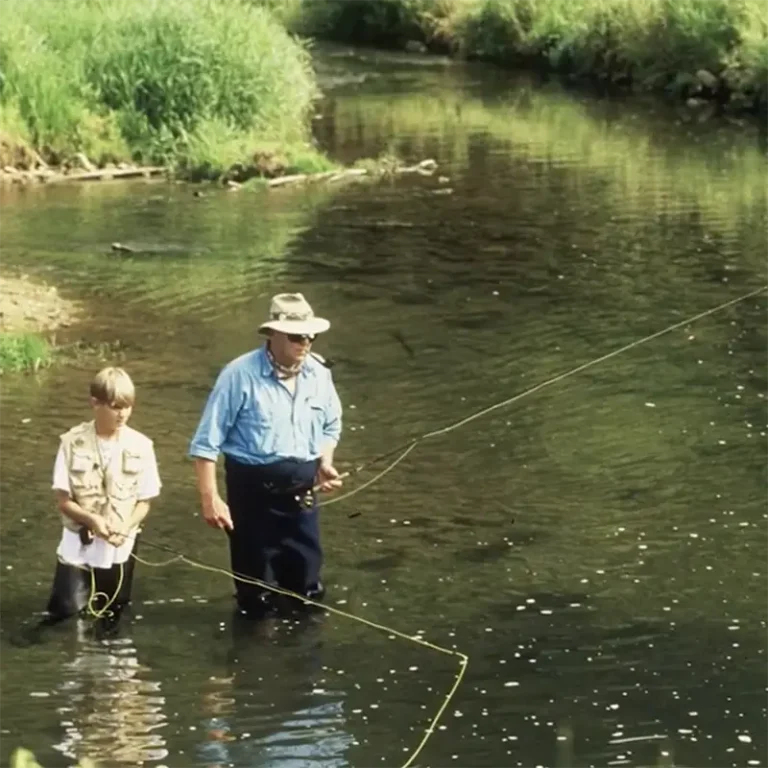
Perhaps none of this — from the accolades to the lure collections — would’ve happened if Born had stayed at Shell in 1966. “Leaving Shell was a complicated decision,” he reflects. “But I knew if I didn’t get back to school then, I would be trapped in a corporate career.” Embedded in his memory is a two-hour conversation with the vice president of Shell, who helped him work through the decision. “I was absolutely shocked that a busy corporate executive would put aside time and clear his desk, for two hours, to talk to me about my future. I was surprised and caught off guard,” Born remembers. “That influenced me for the rest of my life,” he says, his voice breaking.
It was a lesson in deep mentorship, human connection, and the humility needed to give time for others. “Pull away from yourself and take a look at what you’re doing [and] how you’re relating to other people,” he says. He carries that lesson through the rest of his life, sharing it with countless UW–Madison students — now today’s changemakers. “When students or other people came in with life-influencing decisions, sure I was busy, sure I was doing my own stuff. But make time,” he says. “All of that became part of my ethos, my working style, as I tried to work my way through life …
… and I caught some fish.”

